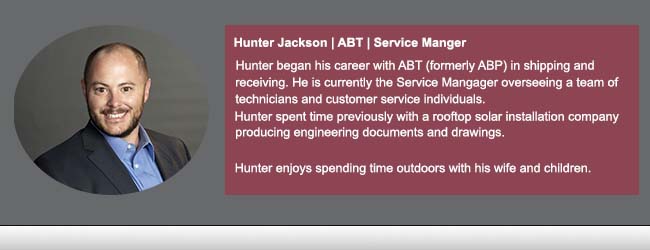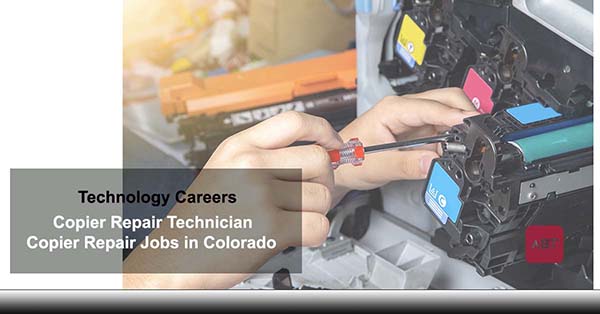Technology Careers |Copier Repair Technician
A love of technology, it starts in the beginning…
Growing up did you find yourself taking apart your toys just as much as you played with them? Did you ever find yourself taking apart the family DVD player just for the heck of it? Were you able to put it back together, mostly save for a few screws? Do you find it difficult to pay someone to repair something that you feel that you could do even though you have no idea what you are doing?
There are many paths to becoming a service technician that works on office printers and copiers, however many of these paths all can be traced back to a curious child that much to the chagrin of their parents took everything apart.
Today the typical paths to a becoming a copier technician can be reduced to several situations; you know somebody that has been a copier technician and they provided a job opportunity for you, you went to a trade school and learned about electronic systems repair and needed a job upon completion of your program, or you were in the military and learned electronic systems on submarines, helicopters or jets.
Copier Technician Careers and Opportunity Everywhere
Copier and printer technicians always seem to be in demand, even Hollywood has been able to incorporate the importance of properly functioning copiers . Thinking back to the movie Office Space and the little printer flashing the error “PC Load Letter” whenever someone needs to print something and then the characters finally exacting their revenge on the little printer that couldn’t in the end of the movie with baseball bats in a vacant field.
Had those individuals in that office just had a technician who could have helped explain what they were seeing on the printer its life could have been spared. In our continually evolving office environments we see the need for a couple types of technicians, all copiers seem to malfunction at some point, continually jamming, only printing half an image, printing lines down the paper, and all copiers at some time seem to stop communicating with computer someone is trying to print from.
These two types of issues can sometimes be solved by a single technician with proper training but sometimes the communication issues between copier and computer are much more complex and require an IT/ network technician to diagnose network issues.
Getting Started as a Copier Technician
Typically, a new technician will start out working in their company’s shop assembling and setting up the copiers prior to delivery and repairing smaller devices that have been brought in. Part of this introductory process would be taking in-person and online training courses provided by the manufacturers.
For a single manufacturer, say HP for example, a new technician could anticipate 1-2 weeks of preliminary online training courses going over the fundamentals of how colors are mixed and applied to a piece of paper and fundamental “How Copiers Work” courses.
Upon completion of the preliminary courses, you would jump into copier specific courses and then expect to travel up to Boise, Idaho, again using HP for example, for a multi-week hands on course that would go over the design of the device and most importantly learning to diagnose and troubleshoot issues and use service manuals. After returning from training the new technician would expect to shadow a senior technician for several weeks to months to become more familiar and comfortable with the varied workplaces and issues that devices have in customers’ offices.
This might happen multiple times throughout a technician’s career as they are introduced to new equipment types and different manufacturers. Any given technician can work on a small desktop printer with and output of 15 pages per minute all the way to a 35’ long production printer outputting 300+ pages per minute and will need to be trained accordingly.

Becoming an IT Technician
For IT technicians, for most of them, they didn’t just wake up one day and decide they want to go to college and become Comptia A+ certified or get C++ certification, sit through weeks of Microsoft Network Fundamental training courses, get a computer science degree so they could make sure that a copier can function every time one person in a hundred-person office hits print and the print job goes to the correct printer in the correct format.
For the most part within the copier service industry there is a self-selection process that almost seems to naturally occur where a service technician is more computer savvy and their curiosity to always take things apart has now moved to the virtual world where they are now looking at networks, protocols, and security settings and how they interact with copiers and printers in a myriad of office environments. It is typically at this point that a copier dealer will recognize this and then have those technicians go through the networking classes, send them out for additional training to receive the requisite certifications.
A copier service technician often is a representative of the face of the company to the customer and often builds and strengthens the relationship between customer and company to maintain lasting business relationships. It is important for technicians to look and act professional and have good communication skills, occasionally needing to calm upset customers before they take a bat to the copier.
It is important to have good mechanical skills and be able to use good deductive reasoning and remain calm while working in customer offices. Patience is truly a virtue for technicians while working on copiers, especially when device errors are repeatedly caused by forgetful customers. Technicians are typically responsible for a geographic territory with devices from manufacturers that they have, hopefully, been trained on.
They will perform preventative maintenance on the devices per the recommended schedule, they will perform corrective calls due to parts failure, and now with the increasing complexity of office networks a growing portion of calls are related to network issues. Correcting issues where office computers are not able to communicate with the copier or an incorrect print driver has been installed on a computer and is essentially is trying to speak a foreign language to the copier. While some these errors are simple to fix, they can easily convince a customer that they have a lemon of a copier.

Typical technicians work a standard 8-5 schedule while having a rotating on-call responsibility for weekends and after-hours emergency service calls.
Most of the independent service providers will follow a similar schedule. With some of the larger companies or those that are directly owned by a manufacturer they might run 2-3 shifts per day depending on the type of equipment they are servicing.
What do copier technicians make starting out?
A new technician can expect a starting wage in the $15-20 per hour and a senior technician that has been trained on the more complex production level equipment could expect a wage in the $25-35 per hour. IT technicians will see salaries in the $25-40 per hour. Often times technicians will have some sort of incentive laden bonus plan built into their pay structure that can add to their gross monthly or annual pay as they hit certain predetermined performance benchmarks. Most companies will offer some sort of matching 401k plan, a healthcare plan (frequently having contributions from both employee and employer), PTO plans.
A career in the copier service industry can offer great opportunities for many individuals that could never see themselves operating a desk 40 hours per week and sitting through countless meetings, wanting to do work with their hands, while not wrecking their bodies from overwork and physical abuse.
The hours are great for family life as well, requiring minimal overtime and little travel, mostly adhering to standard business hours. The work environment changes multiple times per day going from customer office to office, getting to meet many different people in different industries. If feel this is something that sounds interesting to you, reach out today to learn more…

